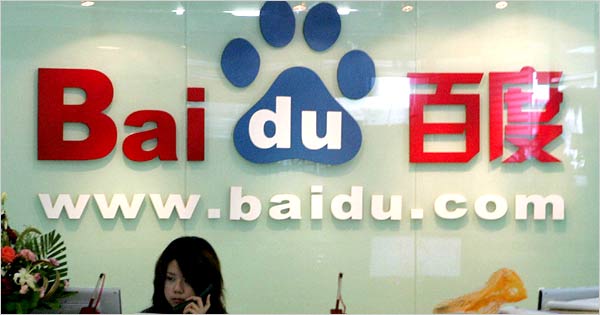Baidu copyright crisis

Forbes magazine released its 2011 rich list on March 10 and credited Baidu CEO Robin Li with a US$9.4-billion fortune, making him the richest man in the Chinese mainland; however, just five days later, Baidu found itself accused yet again of copyright infringement.
Li finds his company under fire from 50 popular writers, including Han Han and Jia Pingwa, who signed a letter accusing China's largest search engine of copyright infringement on March 15. They claim that without their permission Baidu provided free downloads of their works via its online library Baidu Wenku. The letter characterized it as "thievery."
Baidu Wenku was launched in 2009 and allows users to read, share and upload and download files and books for free. Readers can also purchase books from the online library but at a much lower price than bookstores' prices. As of November 2010, Baidu Wenku has stockpiled more than 10 million files and books, which accounts for 70 percent of China's online file-sharing market.
One day later, China Audio-Video Association (CAVA) also released a letter signed by 27 popular musicians accusing Baidu of music copyright infringement and asked it to stop providing access to illegal downloads.
Xu Xiaofeng, the vice executive director of CAVA, said while Baidu's actions have always hurt the Chinese music industry, Baidu increases its own profits through advertising revenue that's generated from the prolificacy of illegal downloads.
"Baidu is an accomplice of pirates," Xu said, and added that they have absolute confidence of winning in court.
Baidu's spokesman Kaiser Kuo says the search engine has paid great attention to intellectual property rights protection and deleted "tens of thousands" of infringing items uploaded by users.
Many record companies, including international ones like Sony and Warner, have previously filed lawsuits against Baidu. China's music industry faces a dire situation, according to Xiao Wei, manager of Beijing's major chain music retailer FAB. He told China Radio that pirates and online downloads have a huge negative impact on the traditional recording industry. "Sales have been down, perhaps 20 to 30 percent, compared to several years ago," Xiao said.
Musician Gao Xiaosong said the music and book industries will select representatives to negotiate the issue around April 5. He also threatened to publicize Baidu's actions worldwide.
Gao says the government will soon take action. He blogged on March 20 that officials with the General Administration of Press and Publication and National Copyright Administration told him that hundreds of thieves have been caught, including the webmasters of several pirate websites.
"The industry didn't fight against the free online listening," Gao said, "Google and Sina.com give their users free and legit music, but what we fight against is the pirates' resources."
The Ministry of Culture took action on March 21 by suspending 54 websites for providing illegal music products, Xinhua reported, and back in January, it had suspended 237 and also notified music websites to delete 100 specific songs that hadn't been officially registered.
 0
0 







Go to Forum >>0 Comments